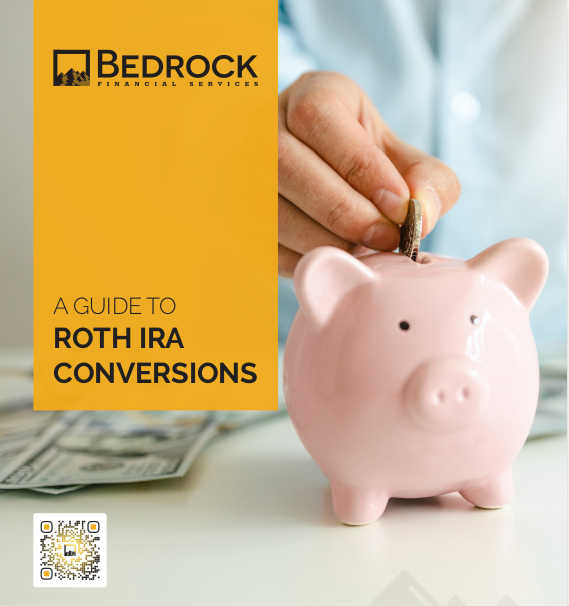Key Takeaways
-
Credentials may open doors, but lasting trust with clients comes from consistently showing up in ways that make them feel seen, safe, and understood.
-
To earn trust in today’s climate, you must go beyond proving knowledge. You need to create emotional safety and clarity at every step of the relationship.
The Credentials Trap: Why Knowledge Alone Isn’t Enough
In a world saturated with certifications, licenses, and digital badges, it’s easy to assume your qualifications speak for themselves. As an independent insurance agent, you’ve likely invested years into building your expertise—completing CE courses, passing licensing exams, and keeping up with regulatory changes.
But here’s the truth in 2025: credentials alone don’t earn trust.
Clients expect you to be licensed. They assume you know the technical details. What they don’t automatically assume is that you care, that you’re listening, or that you can be trusted with their money, family, or future. Trust doesn’t come from your resume. It comes from how you make people feel in every interaction.
Trust is a Feeling, Not a Fact
No matter how logical a decision may seem, people buy based on trust and emotion first. They justify later with facts. And in your industry, where fear, uncertainty, and high stakes are constant, clients are looking for signals of safety more than they are scanning your certificates.
What signals are they looking for?
-
Are you consistent in how you communicate?
-
Do you respond in a timely and respectful manner?
-
Do you simplify what feels overwhelming to them?
-
Do you remember their names, priorities, or concerns?
If the answer to those questions is yes, you’re already doing more to build trust than a degree ever could.
You Can’t Automate Empathy
It’s tempting to think automation can replace parts of the client experience. And while systems are valuable, there’s no replacement for a human who listens without rushing, mirrors a client’s emotions, and offers reassurance without jargon.
Empathy isn’t a line in a script. It’s felt in tone, body language, and timing. In 2025, as AI-generated communication grows more prevalent, your ability to show up as a real human becomes your strongest trust asset.
So the real differentiator isn’t your ability to calculate coverage or list policy types. It’s your ability to:
-
Pause when someone’s voice breaks.
-
Ask follow-up questions that go beyond surface level.
-
Avoid pushing a product when someone’s unsure.
Clients remember the insurance agent who helped them feel smart, safe, and supported. They forget the one who emailed them a brochure.
Predictability Builds Safety
Trust thrives in environments where clients know what to expect. Predictability doesn’t mean being boring—it means being reliable. It means you do what you say, you follow up when promised, and you never leave a client guessing about next steps.
That kind of trust takes time to build, but it’s easy to lose with a single missed commitment.
You can build predictability into your process by:
-
Outlining what will happen next at every stage
-
Setting expectations around timelines, documents, and responses
-
Following up even when you don’t have a final answer yet
Inconsistent behavior—even if unintentional—creates uncertainty. And uncertainty is trust’s worst enemy.
Listening Is Your Competitive Edge
In 2025, listening is an underused sales tool. Too many professionals interrupt, over-explain, or rush through calls.
But when you give someone your full attention, you create something rare: a moment where they feel heard.
Try this:
-
Ask, “What matters most to you right now?” and then don’t fill the silence.
-
Reflect back what you hear: “So it sounds like your biggest concern is making sure your family is covered if something unexpected happens.”
-
Validate emotions without trying to fix them immediately: “That makes sense. A lot of people feel overwhelmed at first.”
These are not complex techniques. But they are powerful. People trust those who make them feel seen. Listening does that faster than any policy brochure ever could.
What You Say Matters Less Than How You Say It
You may be explaining the most accurate, logical, well-researched plan—but if your tone is flat or rushed, it won’t land.
People are attuned to tone, especially when discussing personal finances or family security. Even over the phone, your energy and pace matter.
When you speak:
-
Slow down. A slower pace feels more intentional.
-
Use their words, not insurance jargon.
-
Match their level of urgency. If they’re anxious, acknowledge it; if they’re calm, keep that tempo.
Your goal isn’t just to explain—it’s to connect.
Focus on Micro-Moments That Accumulate Trust
Trust is rarely earned in a single grand gesture. It’s built in dozens of small, often forgettable moments:
-
Returning a call the same day
-
Sending a quick check-in before a renewal
-
Remembering a spouse’s name or a child’s graduation
-
Following up after a difficult claim experience
These micro-moments add up to a feeling: “This person is reliable.” And that feeling is the bedrock of long-term client relationships.
If you’re only focusing on the big stuff—the sale, the pitch, the close—you’re missing 90% of where trust lives.
Your Online Presence Is a Trust Signal Too
In 2025, many clients will check your digital presence before they return your call. They’re looking to see if your tone online matches how you sound on the phone. They’re checking for consistency, clarity, and even personality.
Here’s what you can do:
-
Keep your photo, bio, and contact info updated across all platforms
-
Share occasional insights or short tips to position yourself as helpful, not salesy
-
Avoid tone mismatches—if you’re warm in person but robotic online, clients notice
Your digital footprint is your new first impression. Make sure it supports the trust you’re trying to build.
Confidence Comes From Clarity, Not Complexity
In an industry full of complex terms and fine print, you earn trust by simplifying. Not by dumbing down—but by clarifying.
Use plain language. Repeat key takeaways. Create one-page summaries. Ask if they want visuals. Say, “Let me explain that again in a simpler way.”
Clients aren’t impressed when they don’t understand. They’re reassured when they do. The clearer you are, the more confident they feel—not just in your product, but in you.
Clients Don’t Trust Perfection—They Trust Transparency
Trying to look perfect backfires. Clients see through polish. They appreciate honesty.
If you don’t know something, say, “Let me double-check that and get back to you.” If something went wrong, say, “Here’s what happened, and here’s what I’m doing to fix it.”
Owning mistakes earns more trust than pretending they didn’t happen. In 2025, authenticity matters more than ever.
Clients want to trust you, not a perfectly scripted version of you.
This is What Actually Builds Loyalty
Client loyalty in 2025 doesn’t hinge on product features. It hinges on feelings:
-
Do they feel respected?
-
Do they feel informed?
-
Do they feel safe trusting you with important decisions?
When you create those feelings consistently, clients don’t just stay—they refer.
And that’s the ultimate sign of trust: when someone stakes their own reputation on you.
Trust Is Earned Daily, Not Displayed Once
No certification, title, or email signature builds lasting trust.
You earn it in how you answer the phone. You earn it in how you handle stress. You earn it by making the client feel like the center of the conversation, not a transaction to complete.
We know it takes time. But that’s exactly why it works.
Where Trust Starts (And Grows)
If you’re looking to grow trust, loyalty, and referrals in your business, it starts with being seen as more than just a policy expert. You need to be a reliable guide, a calm voice, and a safe place for your clients to make decisions that matter.
At Bedrock Financial Services, we help independent insurance agents like you do exactly that. From trust-building content tools to hands-on training and client communication systems, we offer real support that meets you where you are.
Sign up today and discover how we can help you become the most trusted advisor your clients have ever worked with.







